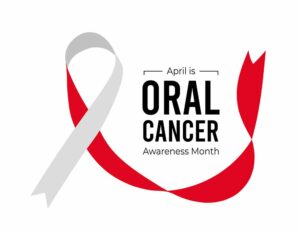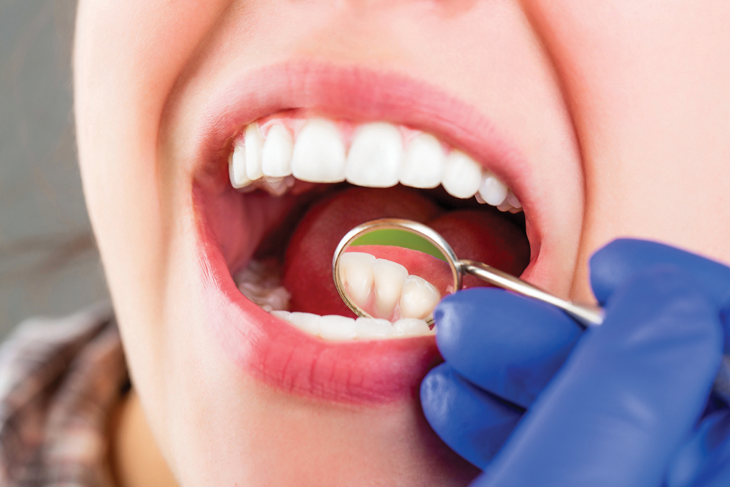 The month of April is oral cancer awareness month, providing an opportunity to highlight the prevention and early detection of oral cancers. Oral cancers, or cancers of the mouth cavity and upper throat, are not as common as other cancers, representing only about 4 percent of all cancers diagnosed in the United States yearly. However, these cancers often are diagnosed at an advanced stage, decreasing the chance of cure.
The month of April is oral cancer awareness month, providing an opportunity to highlight the prevention and early detection of oral cancers. Oral cancers, or cancers of the mouth cavity and upper throat, are not as common as other cancers, representing only about 4 percent of all cancers diagnosed in the United States yearly. However, these cancers often are diagnosed at an advanced stage, decreasing the chance of cure.
Additionally, many who are diagnosed at a late stage and survive suffer long-term problems like facial disfigurement or difficulties eating or speaking. Being aware of the risk factors and understanding the early signs or symptoms not only will help diagnose the illness at an earlier stage, when mortality and treatment-related problems can be reduced, but hopefully will help prevent it as well.
WHAT ARE ORAL HEAD AND NECK CANCER SYMPTOMS?
Some of the most common symptoms include a non-healing sore in the mouth, which may or may not be painful, a painless lump on the neck, difficulty swallowing, a change in voice or hoarseness, an earache, a white or red patch on the gums, tongue or lining or the mouth, a lump or swelling in the mouth or unexplained numbness or pain of the mouth, jaw or neck. Non-cancerous conditions can cause these symptoms as well. However, if these symptoms persist for longer than two to three weeks, see your dentist or health care provider for further evaluation.
WHAT ARE THE RISK FACTORS?
Tobacco products and heavy alcohol use are common risk factors. However, there has been an increase in oropharyngeal cancers, or cancers involving the tonsils or base of the tongue, in young patients without the traditional risk factors. These cancers are related to infection with the cancer-causing types of human papillomavirus (HPV), a sexually transmitted virus. In fact, three-quarters of all oropharyngeal cancers are caused by HPV infection. This is the same virus that is linked to cervical cancer.
CAN I BE SCREENED FOR HEAD AND NECK CANCER?
Your dentist or health care provider can do an oral cancer screening, where they examine oral cavity and neck for signs of cancer or precancerous lesions.
HOW CAN I PREVENT THE DISEASE?
Avoid all tobacco use and use alcohol sparingly. If eligible, vaccinate yourself and your children against HPV. A surprising 80 percent of sexually active people will contract HPV at some point in their lives. The CDC recommends the HPV vaccine for boys and girls beginning at age 11 through the age of 25. However, the FDA has approved an HPV vaccine up to the age of 45.
Being aware of the symptoms and risk factors of oral cancer will help lead to early detection and treatment, which is the key to a full recovery. If you have never had an oral cancer examination, there is no better time than during Oral Cancer Awareness Month! In the future, ask your dentist to make this a regular part of your routine dental checkup.
Dr. Pamela Tuli is a hematologist-oncologist practicing with The Medical Oncology Group – Memorial Physician Clinics. She can be contacted at (228)-575-1234.



